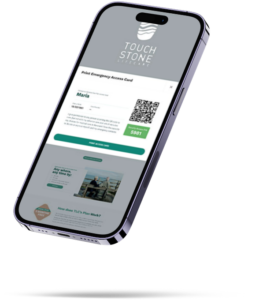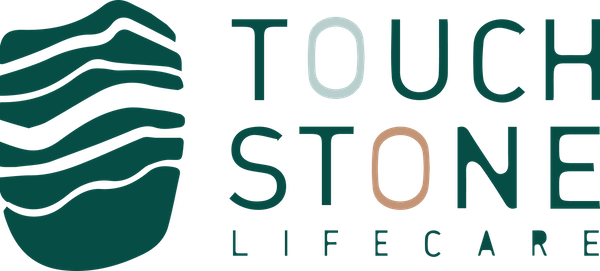Ensuring that all residents have a completed Advance Care Directive (or plan) can be challenging for residential aged care providers. However, with many residents not indicating their preferences before becoming gravely ill, the absence of this vital document can result in families or aged care managers having to make difficult and rushed decisions when an emergency occurs. Alternatively, even if an Advance Care Plan written on paper exists, the chances of it being located quickly when an ambulance is waiting is unlikely.
Touchstone Life Care (TLC) advance care planning software makes it easy for residential aged care providers to upload, store and retrieve Advance Care Plans when required. From ensuring staff have access to their residents’ wishes – even when they can’t voice them, through to helping achieve compliance for accreditation, there are numerous benefits for aged care providers who make the switch to TLC’s digital solution.
Easily create and share Advance Care Directives
Many aged care providers download and print Advance Care Directive forms from government websites. TLC allows you to use your territory or state’s official Advance Care Directive or Goals of Care form — or another document created with your GP, lawyer, or advisor — and upload your completed document as a PDF.
You can also:
- Reflect on your values using our optional questionnaire (not a legal form).
- Add or record a personal statement to supplement your plan.
- Let us know if you’d like a digital vault for storing wills or messages.
As TLC stores and shares Advance Care Plans, aged care providers can trust they have the most up-to-date version that won’t get lost in transit.
The Advance Care Plans can be easily shared via a secure link with family, doctors and other trusted advisors. The link allows them to view a copy of the plan but does not allow them to edit or delete the document.
Sharing the Advance Care Plan with family members has the added benefit of potentially opening up discussion about the resident’s wishes, thereby reducing the risk of confusion and conflict if and when a decision about medical treatment needs to be made. Anyone with the link will be able to access the document at any time.
Secure and accessible at anytime
Paper copies are easily misplaced in an emergency, or an
outdated copy may be the only one locatable.
TLC’s digital platform allows Advance Care Plans to be accessed from anywhere at any time by:
- QR code
- Touchstone Life Care app
- Inclusion in My Health Record.
source of truth for all these documents.

TLC complies with Australian Privacy laws regarding data security and follows best practice data security protocols. Individual user records are separated using access control lists, ensuring no user data is exposed to any other user. The final public connection to and from the server features AES 256 bit encryption. TLC servers are located in an extremely secure, PCI DSS approved data centre in Sydney, with access strictly limited to secure personnel only.
Future proofing for compliance
Residential aged care providers have a responsibility and duty of care to ensure they do all they can to understand the Advance Care Directive of each resident and to fulfil them to the best of their ability.
The government has enacted legislation that will help ensure advance care planning is one of the fundamentals of the aged care experience, and providers need to be aware of their responsibilities.
Aged Care Quality Standards
The Aged Care Quality Standards – Standard 2, Requirement (3)(b) – specifies that assessment and planning identifies and addresses the consumer’s current needs, goals and preferences, including advance care planning and end of life planning if the consumer wishes.
In addition, Advance Care Planning Australia (ACPA) recommends aged care providers ensure that:
- Aged care recipients are encouraged to think about and discuss their future health care preferences with loved ones and health care staff.
- Aged care recipients have a clearly identified substitute decision-maker.
- Existing advance care directive documents are available and transferable between care providers.
Recommendations from the Aged Care Royal Commission
Recommendations 68 and 66B from the Aged Care Royal Commission have both been adopted by the Federal Government.
Recommendation 66B requires staff of residential aged care services when calling an ambulance for a resident to provide the paramedics on arrival with an up-to-date summary of the resident’s health status, including medications and advance care directives.
Recommendation 68 requires every approved provider of aged care delivering personal care or clinical care to use a digital care management system interoperable with My Health Record.
What aged care providers need to do:
- Aged care management requires a system for Advance Care Directives that is verifiably up-to-date, legal, available 24/7 and able to be provided by the staff to paramedics on their arrival.
- Providers need to show initial and ongoing assessment and planning in partnership with the consumer that includes advance care planning and end-of-life wishes.
- Staff must demonstrate they understand advance care planning, and the needs and preferences of their individual consumers and residents.
- Providers will need to verify all Advance Care Directives are up-to-date and the person had capacity to make decisions and was not coerced.
- To meet Australia’s privacy guidelines and your data security needs, you should eliminate manual handling of documents that contain sensitive health Information, such as that found in Advance Care Directives.
- Staff need training in how to facilitate advance care planning and how to use digital technology to create, share and access Advance Care Directives.
Making the switch to digital
TLC supports organisations with a comprehensive digital advance care planning system. TLC provides one-click compliance, with reports easily downloadable as evidence for accreditation purposes. Integrating with existing clinical IT systems, TLC is suitable for residential as well as home care providers, to assist in meeting compliance obligations. TLC’s digital training and technology is also eligible for tax rebates.
Book a demonstration today to find out more about why residential aged care providers are making the switch to TLC’s advance care planning platform.






















